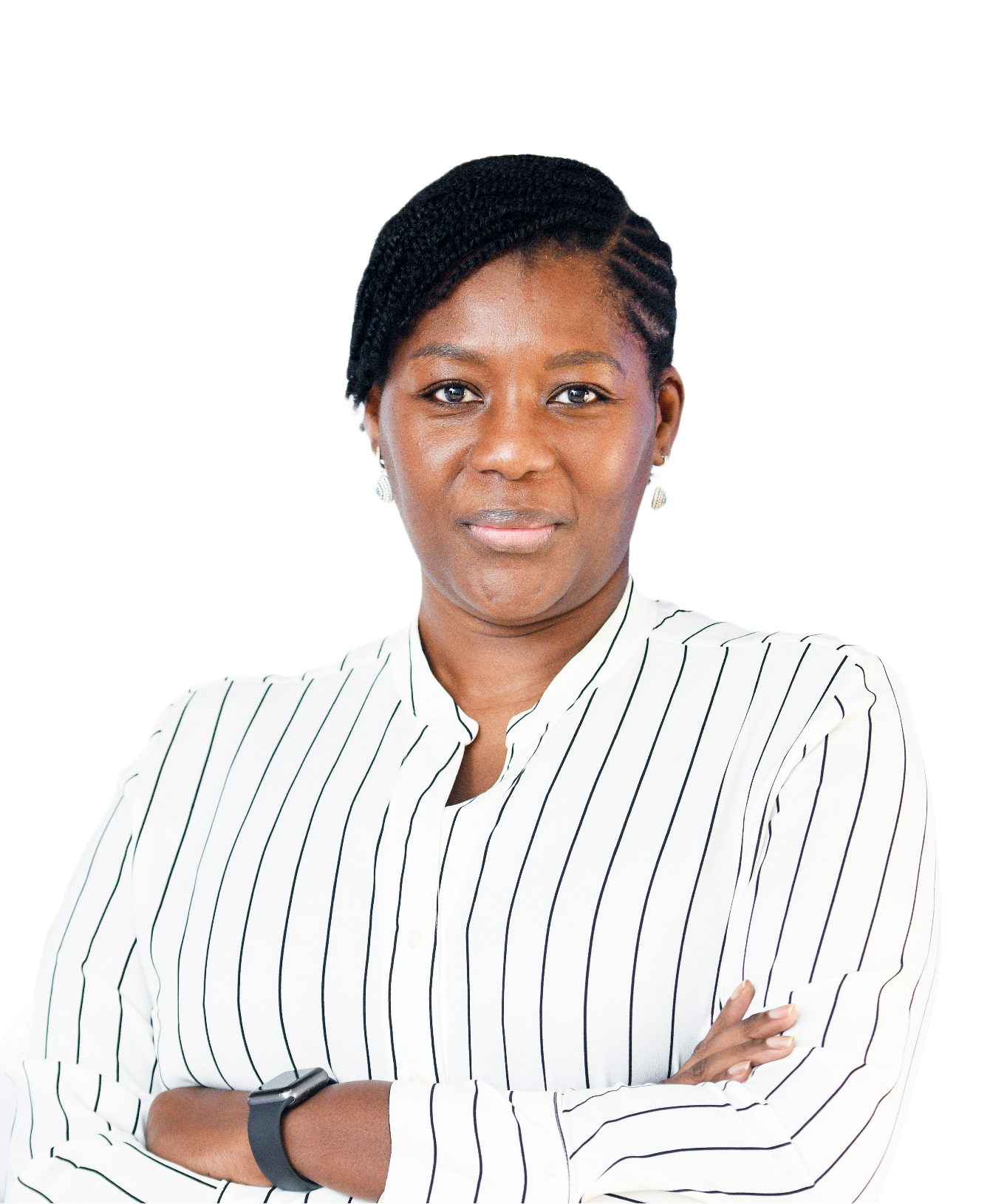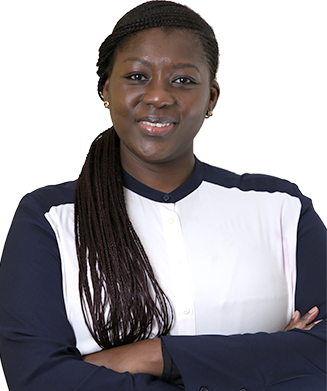Senior Management Committee
The Senior management committee is in charge of overseeing the day to day management of the organization’s operations. It directs and oversees the research, capacity building and communications activities. It is led by the Managing Director.

Debisi Araba
Managing DirectorDebisi Araba, Managing Director

Dr. Debisi Araba is a public policy, innovation, and strategy specialist with a focus on the future of food, the environment, and entrepreneurship. He currently serves as the Managing Director of AKADEMIYA2063.
Prior to this role, Dr. Araba was a Senior Consultant with the African Development Bank (AfDB), advising on Agriculture and Food Systems. He is also a Visiting Research Fellow at the Centre for Environmental Policy, Imperial College London.
Dr. Araba previously served as the inaugural Managing Director of the Africa Green Revolution Forum (now known as the Africa Food Systems Forum) and as the Africa Region Director at the International Center for Tropical Agriculture (CIAT), a member of the CGIAR Consortium.
He is an Emeritus member of the Malabo Montpellier Panel – an eminent group of global experts supporting African and European governments in advancing agricultural development and food security in Africa. Earlier in his career, he served as Senior Technical Adviser on Environmental Policy to the Minister of Agriculture and Rural Development in Nigeria.
Dr. Araba holds a Doctorate in Environmental Policy from Imperial College London, a Master’s in Public Administration from the Harvard Kennedy School, a Master’s in Clean Technology from the University of Newcastle Upon Tyne, and a Bachelor’s in Physical Geography from the University of Ibadan.
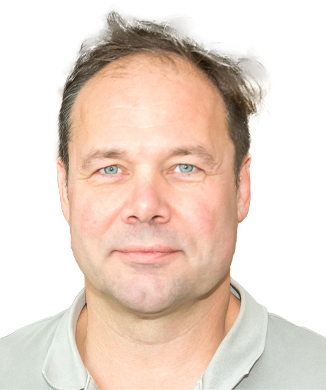
Christian Henning
Lead Scientist
Christian Henning, Lead Scientist

Dr. Christian Henning, is lead scientist at Akademiya2063. He is currently on leave as a professor and chair of agricultural economics, University of Kiel (Germany), where he taught agricultural economics and computational political economy since 2000. His main areas of specialization are applied political economy and applied economic modelling of agricultural and development policies. He has over 30 years of experience, as scientist and consultant, in developing and applying innovative methods for modelling and evaluating policy processes especially in African and European countries, where he worked with leading international research institutions and universities including University of Chicago (James Coleman, Department of Sociology), Stanford University (Barry Weingast, Department of Political Science), MIT (Prof. Ezra Zuckerman, Sloan School of Management), IFPRI, the FAO, the World Bank and the EU.
Dr. Christian Henning studied economics, agricultural economics, sociology, political science and mathematics and earned PhD’s in agricultural economics, in economics and in political science.
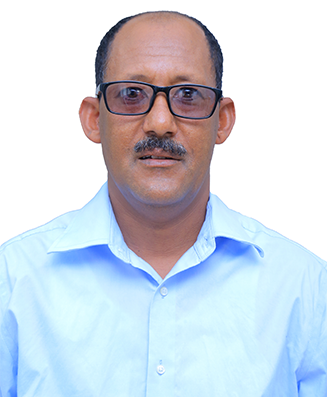
Getaw
Tadesse
Director, Operational Support
Getaw Tadesse, Director, Operational Support

Getaw Tadesse holds a Ph.D. in Agricultural Economics from the Norwegian University of Life Sciences (Norway). He has more than 10 years of experience in agricultural development and food security research and project management.
Before joining AKADEMIYA2063, he worked as a Research Fellow at the International Food Policy Research Institute (IFPRI), and as a Postdoctoral Researcher at the Center for Development Research (ZEF), University of Bonn, Germany. His research seeks to understand (a) the dynamics of food prices and trades at local, national, regional and global markets; (b) the role of the private sector and civil society in African agri-food system and public supports needed to enhance their competitiveness; and (c) the impacts of policies and programs on food and nutrition security, commercialization of smallholders, competitiveness of private enterprises and food markets.
His research has a geographical focus in Africa with extensive experience in Ethiopian agricultural development and food systems. He is very conversant on household and plot level data collection and econometric methods.
He has published over 20 articles in professional journals and books listed in Google scholar with citations (782) and h-index (10). Furthermore, he has contributed to enhancing the capacity of African experts and policymakers on national agricultural investment planning, assessment of program and policy opportunities and the use of evidence-based planning and implementation of food security and employment generation programs.
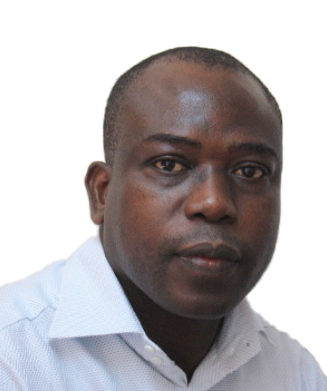
Sunday Odjo
Deputy Director, Operational Support
Sunday Odjo, Deputy Director, Operational Support

Sunday Pierre Odjo is Deputy Director of the Department of Operational Support. He is an agricultural economist with research interest in farm household modeling and trade and agricultural policy analysis.
Before transitioning over to AKADEMIYA2063, he served as a Senior Research Coordinator in the Africa Division of the International Food Policy Research Institute (IFPRI). Over the past ten years, he has supported West African Authorities for the development of national agricultural investment plans as part of IFPRI’s scientific and technical assistance to the implementation of the Comprehensive Africa Agricultural Development Program (CAADP).
He recently led several survey projects in Niger as part of a collaborative research work between IFPRI and the Millennium Challenge Corporation (MCC). Prior to joining IFPRI, he served as an Agricultural and Trade Policy Advisor in the Secretariat of the Conference of Ministers of Agriculture of West and Central Africa, facilitating country-level implementation of CAADP Framework for Improving Rural Infrastructure and Trade-Related Capacities for Market Access.
He holds a PhD in Rural Economics from the Catholic University of Louvain-la-Neuve, Belgium and an MA in Geography and Land Use Planning from the National University of Benin.
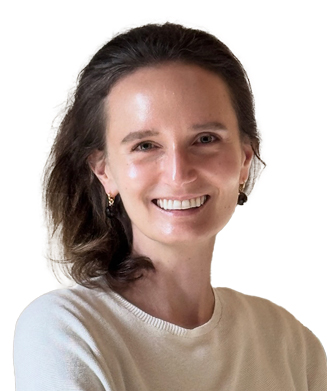
Katrin
Glatzel
Director for Global Strategy and Programs
Katrin Glatzel, Director for Global Strategy and Programs

Katrin Glatzel is a public policy specialist working at the intersection of research, policy, and governance, with a focus on agrifood systems transformation in Africa. She holds a PhD in Environmental Research from Imperial College London, an MSc in Public Management and Governance from the London School of Economics and Political Science, and a BA in European Studies from Maastricht University in the Netherlands.
She currently serves as Director for Global Strategy and Programs at AKADEMIYA2063 and is based in Kigali, Rwanda. Before that, she was a Senior Researcher and Program Leader at the University of Bonn’s Center for Development Research (ZEF) in Germany, where she implemented the Agrifood Systems-Transformative Research Policy project. Her interests span agrifood systems governance and public policy, Africa-Europe relations and partnerships, the climate-agriculture-nutrition nexus, and the bioeconomy.
She previously served as the Director of Policy Innovation at AKADEMIYA2063 in Dakar, Senegal, and was in charge of the organization’s research activities around governance and public policy to accelerate food systems transformation and inclusive economic growth in Africa. She oversaw the implementation of the Digitally Enabled Resilience and Nutrition Policy Innovations (DERPIn) project and served as the program head of the Malabo Montpellier Panel for over ten years. She also served as a Research Fellow at the International Food Policy Research Institute (IFPRI) and as a Policy and Research Officer at Imperial College London.
She is a Board Member of the African Agricultural Technology Foundation (AATF); a Member of the Scientific Advisory Group to the GIZ Global Program on Food Systems Transformation; a Visiting Researcher at Imperial College London; and an Extraordinary Lecturer at the University of Pretoria’s Department of Agricultural Economics, Extension and Rural Development.

Racine
Ly
Director, Data Management, Digital Products and Technology
Racine Ly, Director, Data Management, Digital Products and Technology

Prior to joining AKADEMIYA2063 as Director of Data Management, Digital Products and Technology, Racine worked as a ReSAKSS Research Coordinator at the International Food Policy Research Institute (IFPRI). His primary areas of research are in Predictive Modeling, Machine Learning techniques applied to geospatial data and crop type classification with unsupervised learning techniques. Racine believes in harnessing technology and digital tools to impact policy and decision-making processes in the agricultural sector.
Racine is a 2018 Obama Leaders Africa program fellow. He holds a Master's degree in Mathematical Modeling and Multi-Scale Simulation through a joint degree program between the Ecole Nationale des Ponts et Chaussées and the Paris-Est Marne-La-Vallée University. He subsequently earned a doctoral degree in the field of Engineering Sciences applied to Spatial Transport Systems, through the French Space Agency (Centre National d'Etudes Spatiales) and the University of Bordeaux.
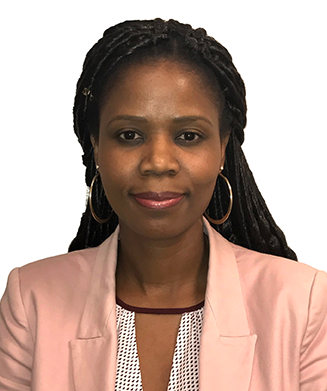
Tsitsi Makombe
Director of External RelationsTsitsi Makombe, Director of External Relations

As Director of External Relations, Tsitsi Makombe leads the organization’s efforts to build, enhance, and maintain innovative and strategic partnerships. She cultivates relationships with a diverse array of partners and stakeholders including continental and regional organizations, national governments, non-state actor organizations, and investors.
Prior to joining AKADEMIYA2063, Tsitsi was a Senior Program Manager with the International Food Policy Research Institute where she successfully managed diverse partnerships and multi-year projects and programs in support of the Comprehensive Africa Agriculture Development Programme (CAADP).
She is a certified project management professional (PMP) with over 15 years of programmatic and research experience in African agricultural development. A citizen of Zimbabwe, Tsitsi received her M.S. degree in Agricultural Economics from Michigan State University and a B.S. degree in Agriculture and Natural Resources from Africa University.
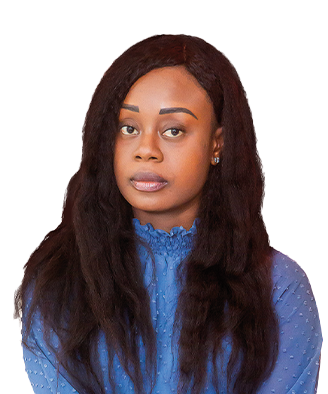
Layih Butake
Director, Communication and Outreach
Layih Butake, Director, Communication and Outreach

Dr. Layih Butake is a versatile, result-oriented communication and program management professional with over ten years of experience in not-for-profit communications, program management, and research in the higher education and international development sectors.
Holder of a Master’s in Corporate Communication, a PhD in Performing Arts and Cinematography studies, four certifications in Project Management (PRINCE 2 Foundation & Practitioner and Project Management for Development Professionals (1 & 2)), a Core Humanitarian Certification and certificates in crisis, humanitarian communication and public relations, Layih brings a unique perspective from the blend of her academic and corporate background.
Before joining AKADEMIYA2063, Layih served as Acting Director of Communications at the African Institute for Mathematical Sciences (AIMS) Global Secretariat, previously holding the positions of Senior Outreach Manager and Communications and Outreach Manager at the same organisation. Other roles held include Adjunct Lecturer at the Performance and Visual Arts Unit of the University of Buea and the Department of Arts and Archaeology at the University of Yaoundé I, Cameroon, and Research Officer at the S.T. Muna Foundation.
A highly passionate creative and excellent writer with a solid background in strategy, content development and research, she is exceptionally skilled in scripting and directing audio-visual productions. Creative writing, events, media relations, program management, and the conception of a wide range of communications collateral are central to her work.
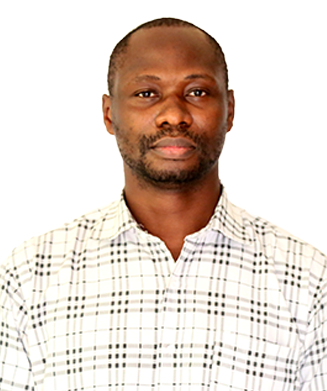
Mahamadou Tankari
Mahamadou Tankari, Deputy Director, Capacity and Deployment

Dr. Mahamadou Tankari is the Deputy Director of the Department of Capacity and Deployment at AKADEMIYA2063. Previously, Mahamadou worked at the International Food Policy Research Institute (IFPRI) in Senegal where he carried out policy-oriented research.
His research interests cover agricultural economics, health economics, food security and poverty issues. He has authored and co-authored many published articles in peer-reviewed journals including Food security, Journal of Development Studies, Economic Modelling, Agricultural Economics and Journal of African Economies.
Mahamadou received his PhD in Economics from the University of Pau, France. He holds a Master’s degree in Statistics and Economics from ENSAE Senegal and a Masters in Mathematics from the University 08 Mai 1945, Algeria.
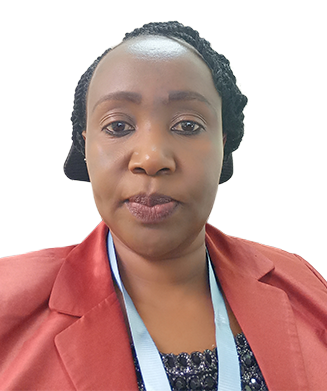
Mercy Thairu
Mercy Thairu, Director, Finance and Administration

Mercy has more than 20 years of experience in finance, operations, and grants management with donor-funded international organizations across Africa. She holds an MBA in Finance and is a CPA-K.
As the DFA, Mercy oversees finance, administration, contracts, fiscal management, grants, and reporting. She also leads the development and monitoring of financial and administrative frameworks to strengthen risk management and ensure compliance.
Throughout her career, Mercy has successfully managed donor-funded programs, overseen complex development projects, and supported organizations in aligning financial strategies with broader goals. She is passionate about building partnerships, mentoring teams, and fostering operational excellence.
